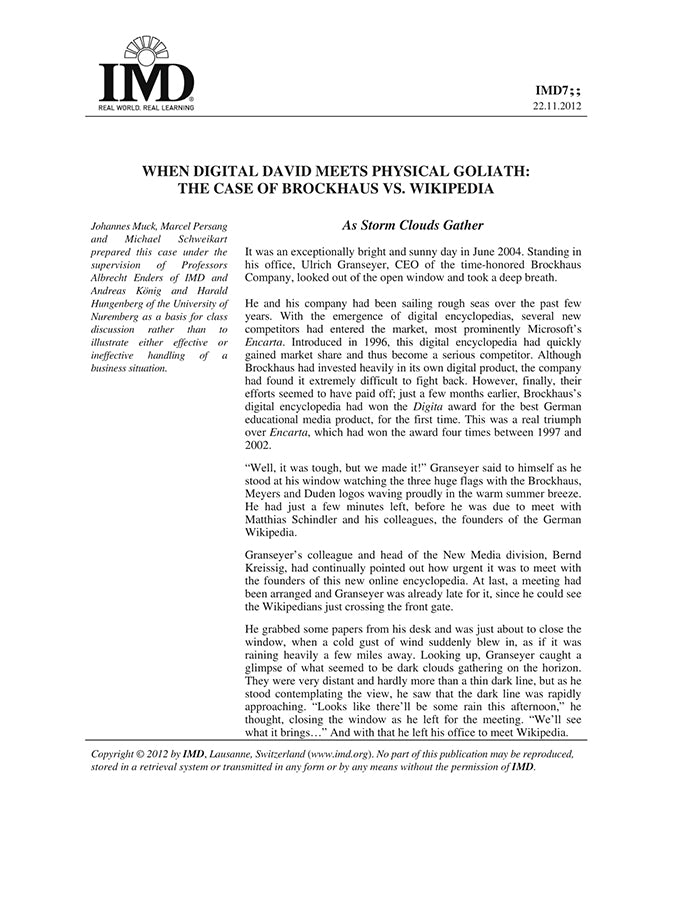WHEN DIGITAL DAVID MEETS PHYSICAL GOLIATH: THE CASE OF BROCKHAUS VS. WIKIPEDIA
受取状況を読み込めませんでした
This case study shows the struggle of Brockhaus, publisher of Germany's best-known encyclopedia, to survive two major challenges: (1) the advent of digital encyclopedias marketed on CD-ROM and (2) the rise of online encyclopedias which are accessible free of charge. While Brockhaus was able to successfully deal with the emergence digital encyclopedias in its war against Microsoft, the company stumbled over the rise of digital encyclopedias and ultimately had to abandon the market for encyclopedias which it had dominated for over a century. The case is structured in three sections. Section one describes Brockhaus' response to the emergence of digital encyclopedias and identifies the main reasons for why the company was able to successfully deal with this innovation. At the end of section one, participants are asked to analyze (1) the strategic situation Brockhaus faced when dealing with digital encyclopedias; (2) the actions of Brockhaus in response to the advent of digital encyclopedias; and (3) the reasons for why Brockhaus successfully dealt with this strategic challenge. Section two contains a review of two theoretical concepts: disruptive innovation theory and the value curve. This theory section should provide the participants with the tools necessary to understand radical innovations and to successfully respond to them. Section three describes Brockhaus' war against Wikipedia and the actions Brockhaus took to deal with online ecyclopedias. At the end of the section, participants are asked (1) to analyze how the strategic challenge brought about by online encyclopedias differs from the challenge resulting from the rise of digital encyclopedias; and (2) to use the value curve concept to design possible strategies in response to the emergence of online encyclopedias. In a wrap-up following section three, the case describes that Brockhaus ultimately failed at successfully dealing with the emergence of online encyclopedias and had to leave the market. Learning objectives: The aim of the case is to enable participants to understand that the emergence of Microsoft's Encarta and Wikipedia both represented major challenges for Brockhaus, but that they differed in a very important aspect: While the emergence of digital encyclopedias was a continuous change, the emergence of online encyclopedias was a discontinuous one. This fundamental difference lies at the heart of Brockhaus's failure since the company tried to tackle both situations with the same strategic approach. In addition, participants will learn to assess whether a strategic challenge is discontinuous or not, to recognize typical behavioral patterns in response to discontinuous change and how these can be overcome.
【書誌情報】
ページ数:16ページ
サイズ:A4
商品番号:HBSP-IMD599
発行日:2012/11/22
登録日:2014/4/21


